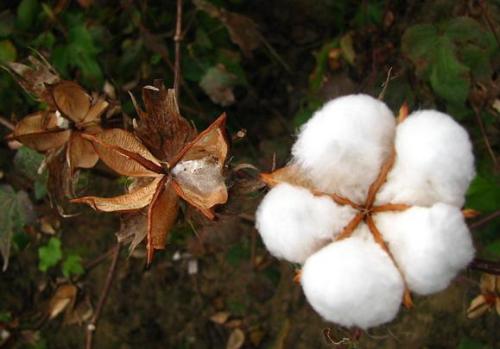
The National Development and Reform Commission decided that starting from March 31 this year, the state’s temporary cotton purchasing and storage policy will be abolished, and the target cotton subsidy pilot will be launched in Xinjiang, and other areas will gradually be pushed back according to the pilot conditions. On April 2nd, Zhao Hongliang, the chief of cotton technology station of Shandong Provincial Agriculture Department, told reporters.
It is understood that China has implemented a temporary purchase and storage policy since 2011, that is, how many cotton farmers grow, how much the country collects, and the minimum protection price. According to Liu Tongli, deputy director of the Provincial Agriculture and Industry Office, the so-called target subsidy is to announce an expected price in advance based on production costs, international prices and market conditions, if the actual sales price is lower than the expected price. The state will subsidize farmers. If the actual price meets or exceeds the expected price, the state will subsidize low-income people.
“Interim purchase and storage policies allow domestic cotton prices to be guaranteed, but side effects also follow.†Zhao Hongliang said, “After the country collects and stores cotton, the storage pressure is high; high-priced recycling is sold at a low price and the state’s financial burden is heavy; cotton textile companies It is difficult to survive due to high costs."
Zhao Hongliang said: "The state will adjust the cotton policy, there will be two kinds of situations. First, Xinjiang's cotton acreage continues to expand, and second, the mainland's planting area will fall sharply."
Yangwen Village, Yangjia Village, Liubao Town, Wudi County, has been planting 300 mu of cotton annually since 2003. He told reporters: "In a good year, the net profit can reach more than 160,000 yuan. However, once the policy of cancellation and collection is canceled, I fear that prices will fall sharply. If so, I will have less species." Yang Wenying said: "Although cultivation and the field Management is done by mechanization, but the whole plantation and weeding in the fields are still artificial, requiring 4 labors per acre in busy times, and the labor cost is high. If the government cancels the temporary purchase and storage policy, the planted cotton will not be issued.â€
According to the current cotton market conditions and production situation, Zhao Hongliang suggested that cotton farmers should grow cotton according to local conditions and plant cotton only on plots suitable for growing cotton; select high-yield and high-quality varieties to increase cotton output; develop moderate scale operations and try to mechanize production; reduce Employment; cooperation with textile companies and large-scale farms, implementation of order-based production, to ensure that cotton sales outlets.
Zhao Hongliang revealed that “Shandong, as the second largest cotton-growing province, is actively fighting for the inclusion of the target cotton subsidy pilot provinces.â€
Viscose is a kind of silk cellulose, which is made of cellulose, which is an organic compound that makes up the majority of plants. Good air permeability, dyeing, moisture absorption and vertical.
Viscose
Poly Viscose,Viscose Fabric,Viscose Rayon,Cotton Viscose
SHAOXING SHUKE IMPORT AND EXPORT CO.,LTD , https://www.shuketex.com
![<?echo $_SERVER['SERVER_NAME'];?>](/template/twentyseventeen/skin/images/header.jpg)